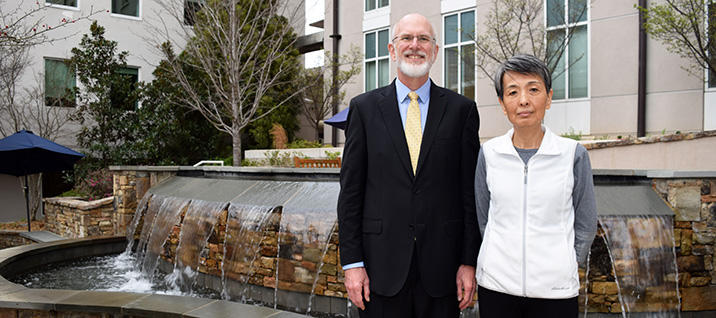Ya Wang, MD, PhD and William S. Dynan, PhD, will receive funding from NASA's Human Research Program and the NASA Space Biology Program to study astronaut health and performance during future long-duration missions.

February 23, 2018
Ya Wang, MD, PhD and William S. Dynan, PhD, Winship Cancer Institute investigators from the Department of Radiation Oncology, will receive funding from NASA's Human Research Program and the NASA Space Biology Program. They will be answering questions about astronaut health and performance during future long-duration missions. Wang, director of the Division of Experimental Radiation Oncology, and Dynan, a biochemist and molecular biologist, were among nine researchers chosen to contribute to NASA's plans for deep space exploration missions.
Dynan will study the "effect of galactic cosmic ray exposure on the functional status of the DNA repair machinery and its contribution to cancer risk," and Wang will examine "space radiation-induced lung tumorigenesis." Both proposals will investigate the effect the space environment has on various aspects of astronaut health, including issues of space radiation and cardiovascular alterations.
The selected proposals are from eight institutions in eight states and will receive a total of approximately $17.7 million during a three- to four-year period. The nine projects were selected from 47 proposals received in response to the research announcement entitled, "2016 HERO Appendix E: Space Radiobiology and Human Health Countermeasures Topics." Science and technology experts from academia, government, and industry reviewed the proposals.
The Human Research Program works to address the practical problems of spaceflight that impact astronaut health. Its research may provide knowledge and technologies that could improve human health and performance during space exploration and aid the development of potential countermeasures for problems experienced during space travel. The organization's goals are to help astronauts complete their challenging missions successfully and to preserve their long-term health. These studies often lead to advancements in understanding and treating illnesses in patients on Earth.

